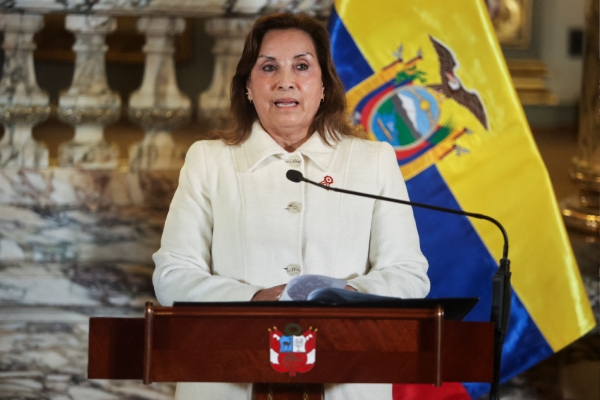Peruvian President Dina Boluarte has approved a contentious bill that will protect the military, police, and other government-authorised personnel from punishment for human rights violations perpetrated during the country’s decades-long internal war.
Boluarte attended a signing ceremony in Lima’s presidential palace on Wednesday, defending the amnesty measure as a way to honor the sacrifices of government forces.
However, human rights groups and foreign observers have decried the bill as a violation of international law, as well as a denial of justice to the thousands of survivors of the conflict.
From 1980 until 2000, Peru was embroiled in a brutal battle pitting government forces against left-wing insurgent groups such as the Shining Path.
However, both sides carried out killings, kidnappings, and assaults on defenseless civilians, with the conflict’s death toll reaching 70,000 people.
Until now, survivors and family members of the deceased have continued to struggle for accountability.
An estimated 600 investigations are currently under way, and 156 convictions have been achieved, according to the National Human Rights Coordinator, a coalition of Peruvian human rights organisations.
Critics fear those ongoing probes could be scuttled under the wide-ranging protections offered by the new amnesty law, which stands to benefit soldiers, police officers and members of self-defence committees who face legal proceedings for which no final verdict has been rendered.
The legislation also offers “humanitarian” amnesty for those convicted over the age of 70.
Peru, however, falls under the jurisdiction of the Inter-American Court of Human Rights, which ordered the country’s government to “immediately suspend the processing” of the law on July 24.
The court ruled against past amnesty laws in Peru. In cases of severe human rights violations, it ruled that there can be no sweeping amnesty nor age limits for prosecution.
In 1995, for instance, Peru passed a separate amnesty law that would have prevented the prosecution of security forces for human rights abuses between 1980 and that year. But it was greeted with widespread condemnation, including from United Nations experts, and it was eventually repealed.
In the case of the current amnesty law, nine UN experts issued a joint letter in July condemning its passage as a “clear breach of [Peru’s] obligations under international law”.
But at Wednesday’s signing ceremony, President Boluarte reiterated her position that such international criticism was a violation of her country’s sovereignty and that she would not adhere to the Inter-American Court’s decision.
Peru’s armed forces, however, have been implicated in a wide range of human rights abuses. Last year, 10 soldiers were convicted of carrying out the systematic rape of Indigenous and rural women and girls.
Drawing from Peru’s Truth and Reconciliation Commission report, the human rights group Amnesty International estimates that the country’s armed forces and police were responsible for 37 percent of the deaths and disappearances that happened during the conflict.
They were also credited with carrying out 75 percent of the reported instances of torture and 83 percent of sexual violence cases.





